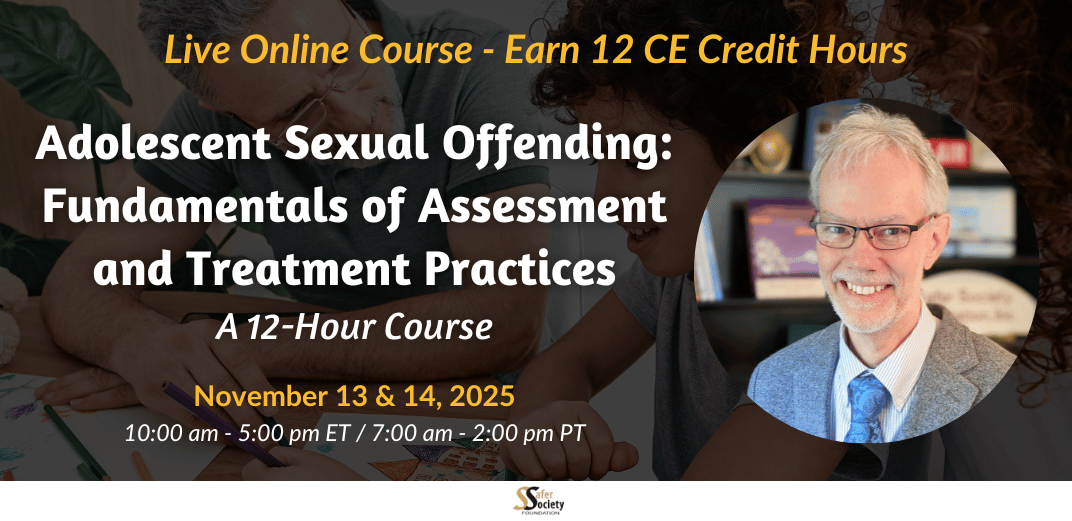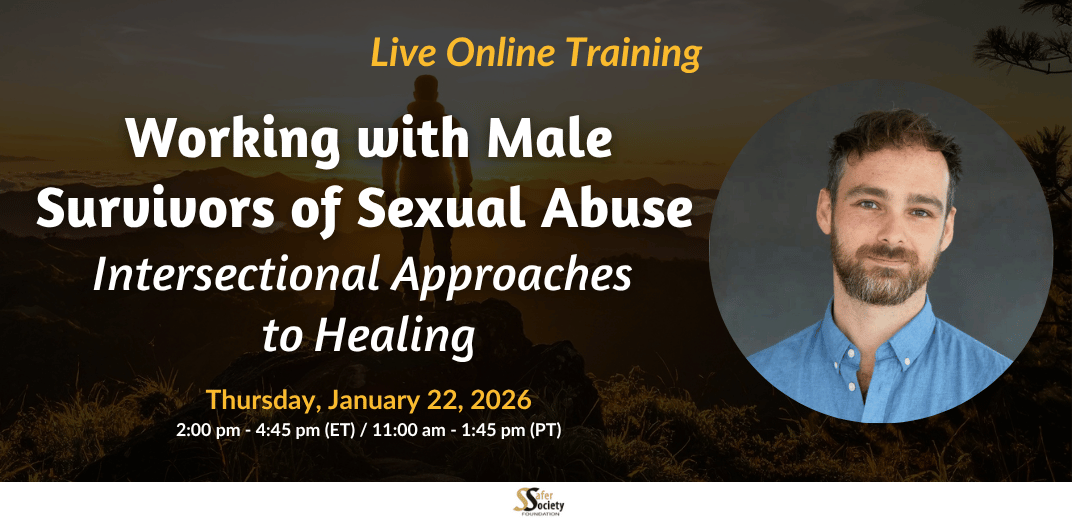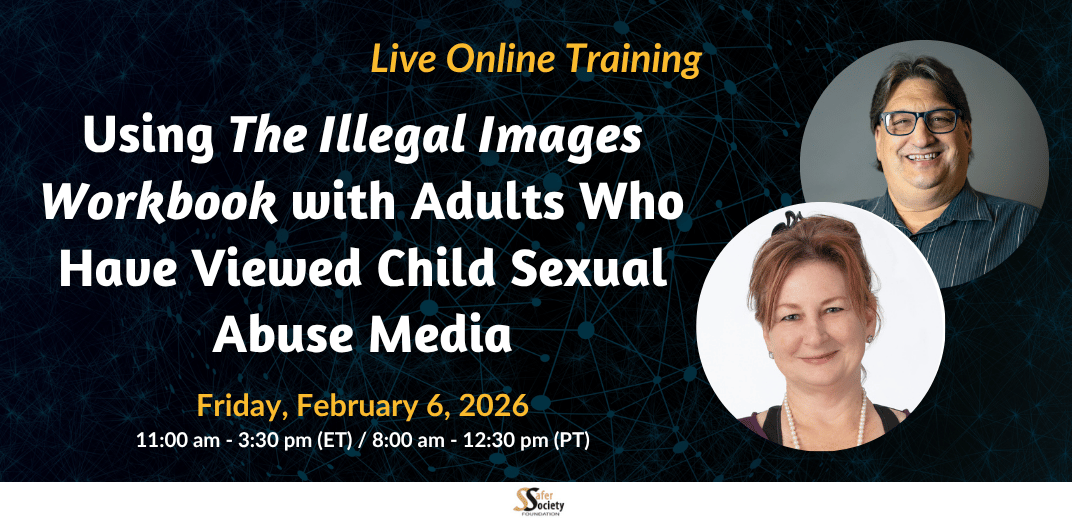
Adolescent Sexual Offending: Fundamentals of Assessment and Treatment Practices – A 12-Hour Course
Effective assessment and treatment of adolescents with sexual behavior problems requires specialized knowledge, practical skills, and a commitment to best practices. Whether you are new to this area of work or an experienced professional seeking to refresh your expertise, this two-day course offers a comprehensive, research-informed overview for clinicians, social workers, juvenile justice professionals, and others working with youths in outpatient and residential settings.











